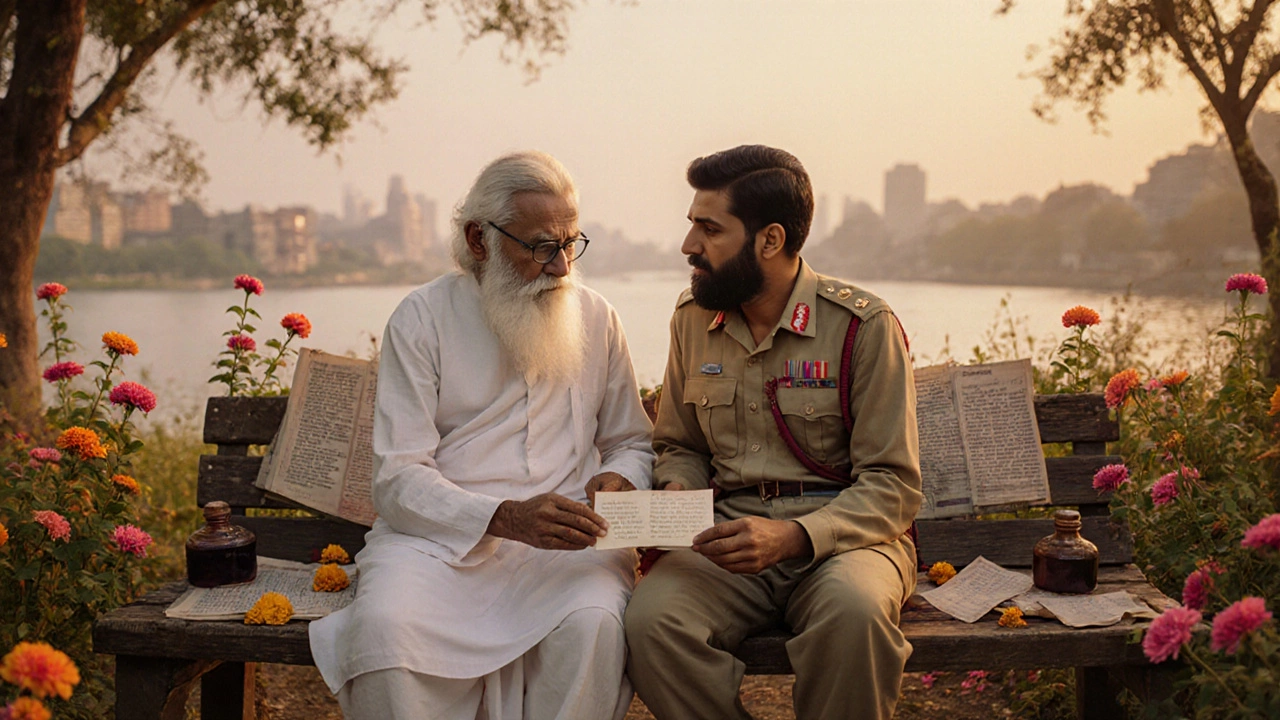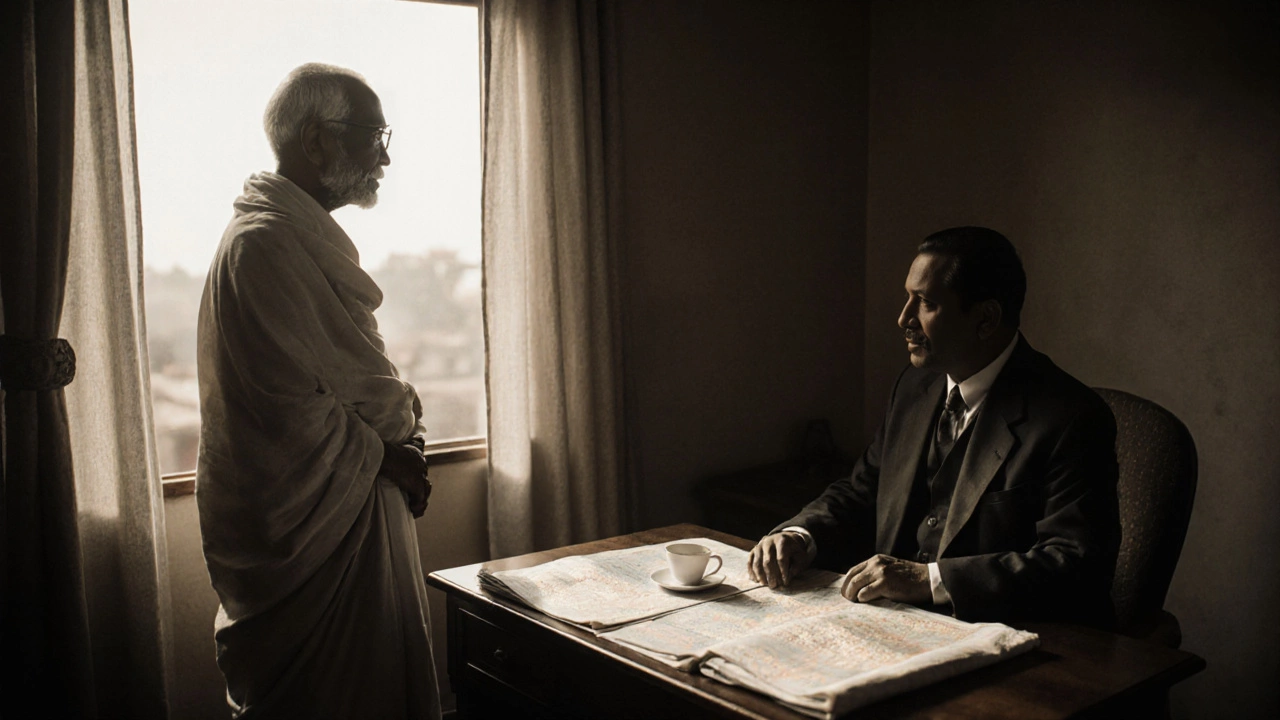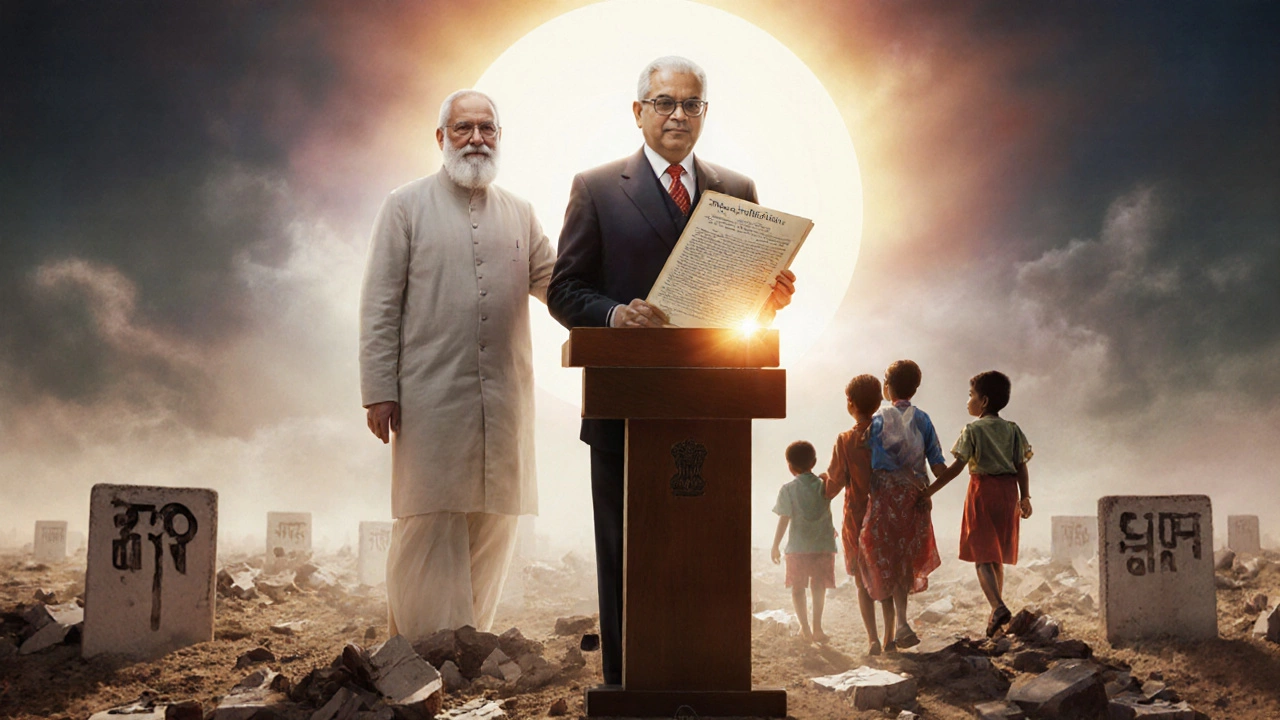Famous Friendships in India That Inspired Millions
 Nov, 3 2025
Nov, 3 2025
Indian Friendship Values Quiz
How well do you understand the article?
Test your knowledge about the key principles of meaningful Indian friendships as discussed in the article. Select the best answer for each question.
According to the article, what is a defining characteristic of Indian friendships?
Which of these friendships specifically demonstrated respect across religious differences?
How did MS Dhoni specifically help Virat Kohli during his captaincy?
According to the article, what is the primary reason why Ambedkar considered Phule his 'guru'?
What does the article suggest is a unique characteristic of Indian friendships that outlasts change?
Your Results
When you think of friendship in India, you don’t just think of two people hanging out. You think of loyalty that outlasts wars, bonds that survived poverty, and partnerships that changed history. India has seen friendships that weren’t just personal-they became part of the nation’s soul. These aren’t just stories told at family gatherings. They’re etched into books, songs, and school textbooks. Some of these friendships began in small towns, others in bustling cities, but all of them carried a quiet power that still moves people today.
Tagore and Kazi Nazrul Islam: The Poets Who Spoke One Language
In the early 1900s, two poets from different sides of a divided land became inseparable. Rabindranath Tagore, already a Nobel laureate from Bengal, met Kazi Nazrul Islam, a young soldier-poet from what is now Bangladesh. Nazrul sent Tagore his poems, and Tagore replied with a letter that changed everything. He called Nazrul the "Rebel Poet"-a title that stuck. Their friendship wasn’t built on shared religion or region. It was built on words. Tagore published Nazrul’s work when no one else would. Nazrul, in turn, wrote poems praising Tagore as a light in darkness. When Nazrul fell ill and was imprisoned by the British, Tagore used his influence to get him released. Their bond was simple: poetry was their passport, and humanity their only law. Today, their letters are displayed in museums in Kolkata and Dhaka, and schoolchildren in both countries still recite their verses side by side.
Netaji Subhas Chandra Bose and Mahatma Gandhi: The Unlikely Allies
They disagreed on almost everything. Gandhi believed in nonviolence. Bose believed in armed resistance. Gandhi wore khadi. Bose wore tailored suits. Yet, they respected each other deeply. When Bose was elected president of the Indian National Congress in 1939, Gandhi didn’t oppose him-he supported the democratic process. When Bose left the Congress to form the Forward Bloc, Gandhi didn’t call him a traitor. He said, "He is a patriot, even if his path differs." Bose, in return, never spoke ill of Gandhi in public. Even when he formed the Indian National Army with Japanese help, he never blamed Gandhi for holding back the revolution. Their friendship wasn’t warm or casual. It was quiet, dignified, and rooted in mutual trust. In a country torn by division, their relationship proved that you can stand for different things and still stand together.
Dr. B.R. Ambedkar and Jyotirao Phule: The Architects of Equality
They never met in person. Phule died in 1890. Ambedkar was born in 1891. But Ambedkar called Phule his "guru"-not because he taught him math or law, but because he taught him to fight. Phule opened the first school for Dalit children in Pune in 1848, when even touching a Brahmin was considered a crime. He wrote books that called caste a lie. Ambedkar read those books as a boy in Mumbai, and they changed his life. He carried Phule’s ideas into the Constituent Assembly, where he wrote India’s Constitution. He made sure the right to education, the right to dignity, and the right to equal treatment were not just ideals-they were laws. Ambedkar once said, "I am not a Hindu. I am a human being who was born a Dalit. Jyotirao Phule gave me back my humanity." Their friendship was one of ideas passed through generations. It wasn’t built on tea and gossip. It was built on courage.

Pranab Mukherjee and Atal Bihari Vajpayee: The Politicians Who Trusted Each Other
In a world where politicians change sides like shirts, Pranab Mukherjee and Atal Bihari Vajpayee stayed friends across party lines. Mukherjee was from the Congress. Vajpayee was from the BJP. They fought over budgets, policies, and power. But when Vajpayee became Prime Minister in 1998, he chose Mukherjee as his Finance Minister. Why? Because Vajpayee knew Mukherjee was honest, sharp, and never held grudges. When Mukherjee was sidelined by his own party in 2004, Vajpayee called him personally to offer advice. When Mukherjee became President in 2012, Vajpayee, then in poor health, sent a handwritten note: "You are the conscience of this nation." They never shared a meal together, but they shared a belief: that service to the country matters more than party loyalty. In a time when political enemies are called traitors, their friendship reminds us that integrity can cross lines.
Virat Kohli and MS Dhoni: The Captain and the Calm
When Virat Kohli took over as captain of the Indian cricket team in 2014, the pressure was crushing. The team had just lost a World Cup final. Fans expected fireworks. Kohli was all fire. But behind the scenes, he leaned on one man: MS Dhoni. Dhoni didn’t give him tactics. He didn’t give him pep talks. He gave him silence. Dhoni would sit next to Kohli in team meetings, say nothing, and just nod. When Kohli lost his temper on the field, Dhoni would pull him aside and say, "Bhai, breathe." When Kohli was criticized for being too aggressive, Dhoni told him, "You don’t need to prove anything. Just play your game." Their bond wasn’t loud. It was steady. Dhoni didn’t need to be captain anymore. Kohli didn’t need to be perfect. They just needed each other. Today, when Kohli speaks about leadership, he doesn’t mention tactics. He mentions Dhoni. "He taught me that calm is the strongest form of control."

Why These Friendships Matter Today
India is loud. Social media screams. News channels divide. People pick sides. But these friendships remind us that real connection doesn’t need sameness. It needs respect. It needs space. It needs the courage to say, "I don’t agree with you, but I still believe in you."
Tagore and Nazrul didn’t need the same religion. Ambedkar and Phule didn’t need the same caste. Mukherjee and Vajpayee didn’t need the same party. Dhoni and Kohli didn’t need the same style. And yet-they held each other up.
These aren’t just stories from history books. They’re mirrors. When you feel alone in your opinions, remember Tagore. When you’re tired of fighting, remember Dhoni. When you’re told you can’t rise because of where you were born, remember Ambedkar. These friendships weren’t famous because they were perfect. They were famous because they were real.
What Makes a Friendship Truly Indian?
There’s no single formula. But if you look closely, you’ll see patterns. Indian friendships often survive silence. They don’t need daily texts. They don’t need public posts. They live in the spaces between words. A phone call after years. A letter tucked in a book. A shared look across a crowded room. That’s the Indian way.
They also survive sacrifice. Not grand gestures. Small ones. Giving your last rupee to a friend in need. Taking the blame so your friend doesn’t get punished. Staying quiet when everyone else is shouting. These aren’t dramatic acts. They’re daily choices. And that’s what makes them powerful.
And finally, Indian friendships outlive change. People move. Careers shift. Families grow apart. But true Indian friendships? They don’t end. They just find new ways to speak.
Real Friendship Isn’t About Being Together All the Time
It’s about knowing that even when you’re not together, you’re still on the same side. That’s what these Indian friendships teach us. You don’t need to agree to care. You don’t need to be similar to be strong. You just need to show up-when it counts, in silence, in stubbornness, in love.
Who are the most famous friends in Indian history?
Some of the most famous friendships in Indian history include Rabindranath Tagore and Kazi Nazrul Islam, Dr. B.R. Ambedkar and Jyotirao Phule, Netaji Subhas Chandra Bose and Mahatma Gandhi, Pranab Mukherjee and Atal Bihari Vajpayee, and Virat Kohli and MS Dhoni. These relationships were defined by deep mutual respect, even when they disagreed on politics, religion, or methods.
Why are Indian friendships often quiet and not loud?
Indian friendships often thrive in silence because they’re built on trust, not constant communication. A simple nod, a shared cup of tea, or a long silence after years apart carries more weight than daily messages. This quiet strength comes from cultural values that prioritize actions over words and presence over performance.
Can you have a strong friendship across different religions or castes in India?
Yes, and history proves it. Tagore and Nazrul Islam crossed religious lines. Ambedkar, born into a Dalit family, carried forward the legacy of Phule, a lower-caste reformer. These friendships didn’t ignore differences-they rose above them. What mattered was shared purpose, not shared identity. Today, these relationships remain powerful examples of unity in diversity.
How did Dhoni influence Kohli’s leadership style?
Dhoni didn’t teach Kohli how to score runs or make field placements. He taught him how to stay calm under pressure. Kohli has said that Dhoni’s silence and steady presence helped him control his emotions. Dhoni showed that leadership isn’t about shouting-it’s about being the calm center in a storm. That lesson changed Kohli’s entire approach as captain.
Are there modern Indian friendships that are as famous as the historical ones?
Yes. Beyond sports, friendships like those between actor Irrfan Khan and director Ashutosh Gowariker, or writer Arundhati Roy and activist Medha Patkar, reflect deep mutual respect across different worlds. Even in business, entrepreneurs like Narayana Murthy and his long-time partner Nandan Nilekani built a legacy on trust, not just profit. These modern bonds carry the same quiet strength as the ones from the past.